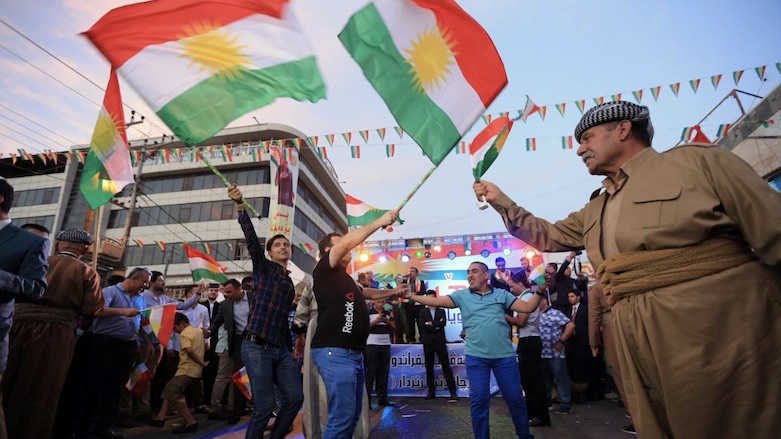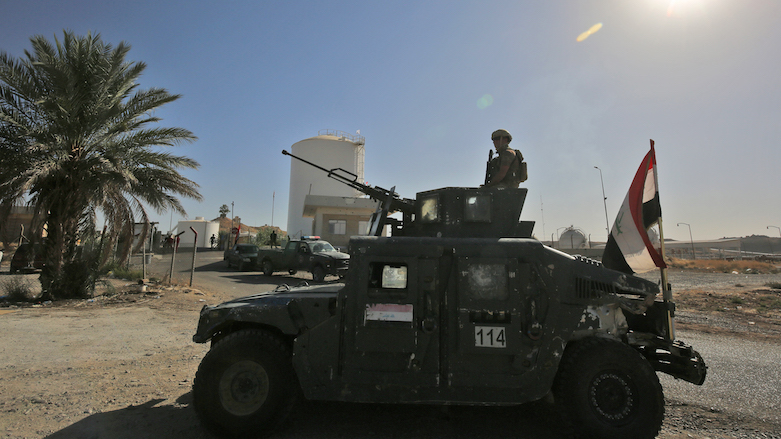US indifference on Kurdish plight provides impetus for Baghdad to sharpen retaliation

LONDON, United Kingdom (Kurdistan 24) – As Kurds voted overwhelmingly for independence in a historic referendum, the threats and rhetoric from Iraq and neighboring powers have intensified.
Thus far, threats of retaliation, including the closure of Kurdistan’s borders, halting of oil exports, seizure of oil revenues and, more ominously, military action, have resulted in the closure of international flights into Kurdistan.
The response from Baghdad has been much fiercer post-referendum than in the run-up to the vote. This can be attributed to the tough line taken by the Turkish leadership but mostly the extent of the United States’ opposition to the Kurdish vote.
The US continues to be fixated on a “One-Iraq” policy and the principle of a united, federal Iraq that does not reflect the reality on the ground, and that has often come at the expense of Kurds.
While the US pummeled trillions of dollars into Iraq and relentlessly tried to promote national reconciliation, enticement of Sunnis into the national fold, and stem the tides of sectarian violence, the Islamic State (IS) had capitalized on those very weaknesses during its rise, as Washington knows all too well.
Now, Washington is again leaning toward appeasing a Baghdad under heavy Iranian influence rather than supporting pro-Western Kurds.
The US approach to the Kurdish referendum has been inconsistent and riddled with double standards.
When the referendum was announced, the US seemed to indicate a degree of neutrality. State Department Spokesperson Heather Nauert suggested in June that any referendum would be “an internal Iraqi matter.”
Of more importance was the statement from Nauert: “We understand and appreciate the legitimate aspirations of the people of [the Kurdistan Region].”
Washington’s concerns were seemingly centered on the timing of the referendum rather than the principle of the referendum itself.
Such a reconciliatory tone morphed into much stronger warnings and objections from the US in the lead-up to the vote, with Secretary of State Rex W. Tillerson insisting after the vote that the US did not recognize the referendum which “lacks legitimacy.”
Baghdad has taken advantage of this to turn the screw on Kurdistan. The lack of US and general Western intervention amid the post-referendum hysteria will naturally alarm the Kurds. The notion the Kurdish referendum would bring instability and a regional crisis has been a self-fulfilling prophecy.
The people of Kurdistan expressed a democratic voice and exercised a right enshrined in UN charters, a principle the US has supported for various other new states.
The move by Baghdad to halt flights was criticized by the US State Department who wanted “all sides to engage constructively,” deeming both sides as friends.
However, as much as the US encourages active engagement, Washington questioning the credibility of the vote merely hardens the Iraqi position and hinders any meaningful dialogue.
For example, Iraqi Prime Minister Haider al-Abadi refused to discuss the outcome of the referendum as he viewed it “unconstitutional.”
The Iraqi Constitution is centered on “free union” of its people. Denying the voice of people who voted in millions to secede, and who had suffered under Iraqi sectarian policies since 2003, not to mention genocide and repression before that, is tantamount to holding them hostage.
Contrary to stifling Kurdish aspirations, Baghdad’s threats and actions have pushed Kurds further away.
Abadi has made more reconciliatory messages in recent days, but the irony would not be lost on Kurds.
For example, he tweeted, “To our people in the Kurdistan Region: we defend our Kurdish citizens as we defend all Iraqis and will not allow any attack on them.”
In fact, it was Iraq who had threatened military actions and fueled the drum of war of neighboring powers through joint drills.
Abadi also insisted Baghdad intends to take control of oil revenues so Kurdish salaries can be paid in full.
It was the actions of former Iraqi PM Nouri al-Maliki that led to the economic crisis in Kurdistan by withdrawing the Kurdish national budget.
There have been increasing voices of support for Kurdish aspirations from US political figures.
Ryan Crocker, the former US ambassador to Iraq, stated, “I personally think that it was a mistake for the United States to come down that hard against the referendum at a time when it clearly was going to take place.”
In spite of all regional threats, Kurdistan is a far cry of the early 1990’s. Economic sanctions would not only harm neighboring powers, as acknowledged by Turkey’s Economy Minister Nihat Zeybekci, but also global powers.
For example, Russia has invested billions of dollars in Kurdistan, signing lucrative energy contracts knowing full well the national aspirations of the Kurds.
Russian President Vladimir Putin is likely to have tempered Turkish President Recep Tayyip Erdogan’s threats when they met this week.
A recent Russian foreign ministry statement underlined that “Moscow respects the national aspirations of the Kurds,” while insisting on “constructive and respectful dialogue” to solve disputes.
This seemingly left the door open for Moscow to accept Kurdish statehood.
Strategically, Kurdistan remains a key player in the region. Cracks are likely to appear quickly in the regional alliance against the Kurds from actors with a history of mistrust, different sectarian and strategic objectives in the region, and various internal crises of their own.
In the fluid Middle eastern landscape, these same regional partners cannot indefinitely sideline Kurds that are vital for furthering their regional goals.
Editing by Karzan Sulaivany

